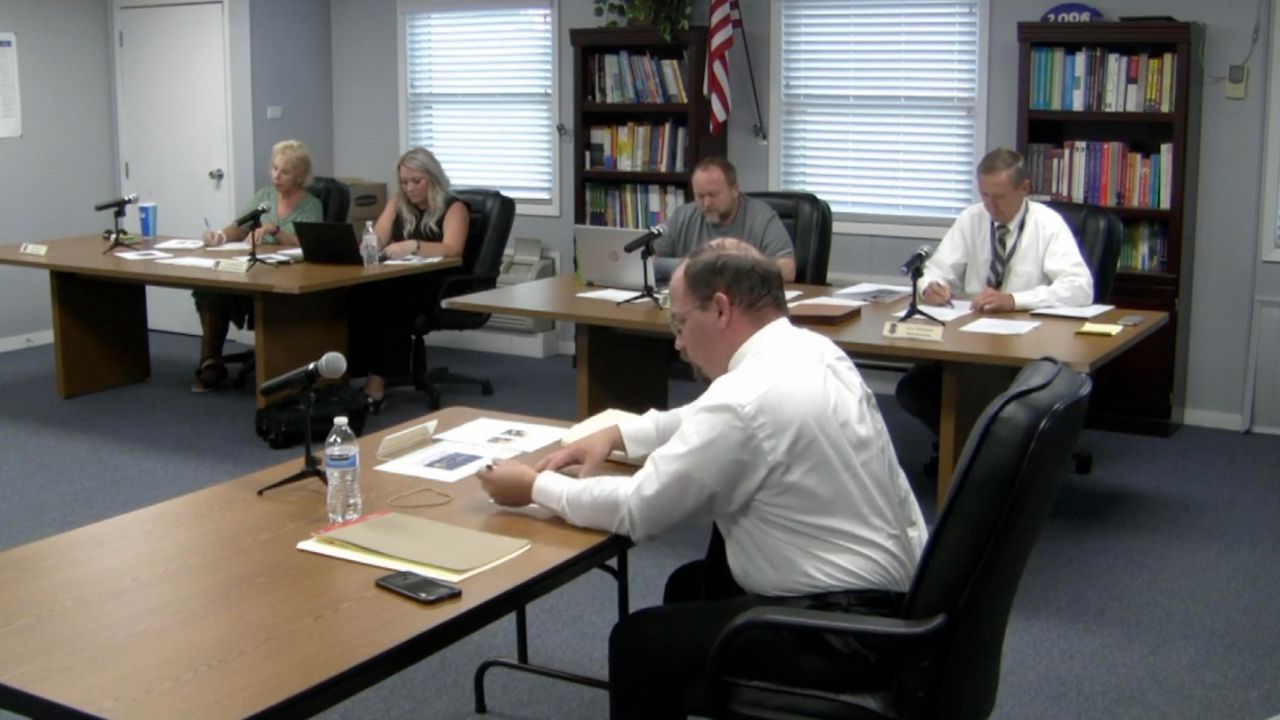FORT THOMAS, Ky. — The debate over critical race theory (CRT) continues across both the state of Kentucky and the country.
A Kentucky state representative applauded a school district she represents for becoming the first in the state to ban the teaching of CRT. Meanwhile, some parents say they think their kids could benefit from the teachings.
Karen Gutierrez, mother of two students at Highlands School in Fort Thomas, said she was intrigued by the prospect of a new social equity class that was being considered at her kids’ school for next year. Gutierrez felt especially strong about it, she said, following the death of George Floyd last summer and the resulting conversations about systemic racism in America.

“I think the interest in teaching social equity rose out of that incident last year that was appalling to so many of us. I want my kids to understand how that could happen in 2020, and what about our country contributed to those circumstances,” she said. “I think that’s really important for kids to be able to think critically about. I think they need to understand the notion that there is systemic racism in this country. There is structural racism. It’s not just about individuals who are racist. It’s more than that.”
The school’s decision making council ultimately rejected the class for the coming year.
Even still, constituents concerned about the class reached out to State Rep. Joe Fischer, R-Fort Thomas, who pre-filed a bill to ban CRT in Kentucky schools.
CRT is tough to boil down, but it's essentially an academic framework for looking at how racism is ingrained in America's laws and institutions.
Gallatin County Schools took a proactive approach of banning CRT in its schools. The district’s superintendent issued a statement saying “The Board also believes no individual is 'inherently racist, sexist or oppressive' due to their race or sex, 'whether consciously or unconsciously.'”

Republican State Rep. Felicia Rabourn represents Kentucky’s 47th district, which includes Gallatin County. She applauded the move by the school board.
“I am very proud of the Gallatin County School Board for sending a clear message, and for keeping the best interests of students in mind. The Department of Education, the leaders across the Commonwealth and country need to put students and their education ahead of this political agenda in special interest groups, which contribute to divide us,” she said.
Rabourn said the message the school board sent “caught the attention of the 138 school districts across our state.” Rabourn said she’s committed to fighting the teaching of CRT in Kentucky schools. She said she’s talked to parents and teachers across the state who are concerned about it as well.
“After nearly a year of a learning gap in Kentucky schools, they feel that teachers need to focus on core subjects, and not push this social and political agenda that seems to be present within our society today,” she said. “Critical race theory or Diversity Equity Training is not based on facts, nor is it based on evidence. You know the teachings of critical race theory, which includes gender, race, nationality and religion, will continue to cause a wedge among individuals in our Commonwealth, and quite frankly, across our country, as it’s continued to do, which will cause resentment, fear, and that’s a major concern. Students need to be taught to value one another for who they are, and what they bring to the table, rather than their race, their gender, their nationality, their religion.”
Rabourn said she’s working on her own bill, BR182, which would ban CRT in all Kentucky schools for grades K through 12. Rabourn said she’s studying other similar bills from other states, and is planning to introduce her bill when the state legislature reconvenes in January. She said the bill will not take away a teacher's ability to teach American history as it truly occurred.
She also said she thinks it will remain an obstacle to work together with leaders across the aisle on this topic.
“I truly believe that the teachings of critical race theory will further divide us. So my message to leaders across the aisle is: let’s agree to disagree on this topic. Let our educators teach true American history as it occurred, and once that child gets older, as they develop, they will have their own opinion,” she said. “But someone in a role model or leadership role that teaches our children should not be in charge of providing opinions, or trying to make the situation different from that point of view.”
While the words “critical race theory” were not used to describe the class at Highlands High School, Gutierrez said she’d like to see the school offer a social equity class at some point in the future after further conversation.
“We want our kids to be educated on this and to be smart about it. And to be empathetic, understand other people’s points of view, and not be stuck in kind of a narrow mindset that we can get into in small communities where people basically look the same,” she said.



